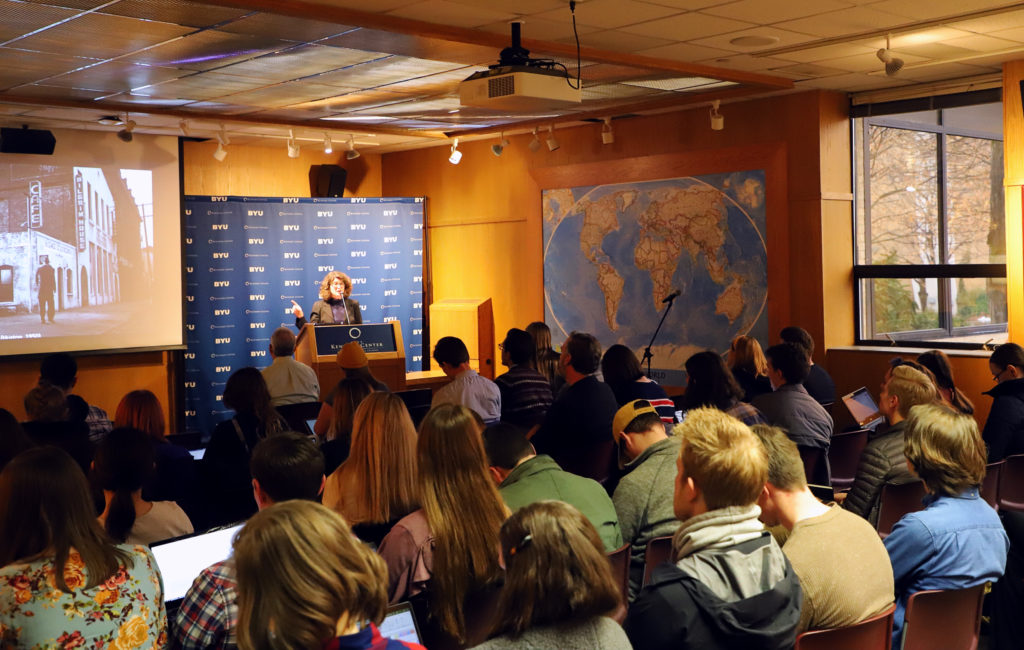
The Kennedy Center has launched an environmental stewardship lecture series, held each Wednesday at noon until April 25, in response to the rising climate-change crisis.
Attendees can look forward to learning about a wide range of topics from a Utah carbon tax proposal to wildlife protection in Tanzania.
“We’d like to raise awareness and promote a discussion among our students, hopefully a well-informed discussion,” Kennedy Center Associate Director Stan Benfell said. “In our day and age, it can be easy to just base your discussion on tweets and things.”
An executive committee comprised of the Kennedy Center program coordinators chose the theme of the series. Benfell said environmental stewardship seemed like a topical issue that would contribute to conversations on campus.
The lecture series is centered on an excerpt from a gospel topics essay from the Church of Jesus Christ of Latter-day Saints, which reads, “This beautiful earth and all things on it are the creations of God. As beneficiaries of this divine creation, we should care for the earth, be wise stewards over it, and preserve it for future generations.”
Benfell believes that the quote invites individuals to consider what it means to be a wise steward. In a conversation with the first speaker of the lecture series, Scott Slovic, the two discussed how convincing people of human-caused climate change can be difficult, but figuring out the best approach to solve it can be an even greater challenge.
Comparative arts and letters professor Chip Oscarson will be featured in the lecture series on Feb. 26, when he will address how film facilitates a discussion about human impact on the planet.
“Climate change touches everything,” Oscarson said. “We’re witnessing species extinction that’s certainly unprecedented in the time that human beings have walked on the earth.”
Oscarson said that students should take environmental crises seriously.
“Our actions have an outsized consequence on other people on the planet,” he said. “This requires a lot of rethinking about what it means to be human and what the responsibilities are of being human, especially of being human in the developed world.”
BYU student Josh Belot, who went to the lecture series for the first time on Jan. 22, said he’ll be going again.
“I would definitely recommend it to people because it raises awareness of how human activity affects the environment,” Belot said.
Lectures will be held in 238 HRCB. The full schedule can be found on the Kennedy Center’s website.




